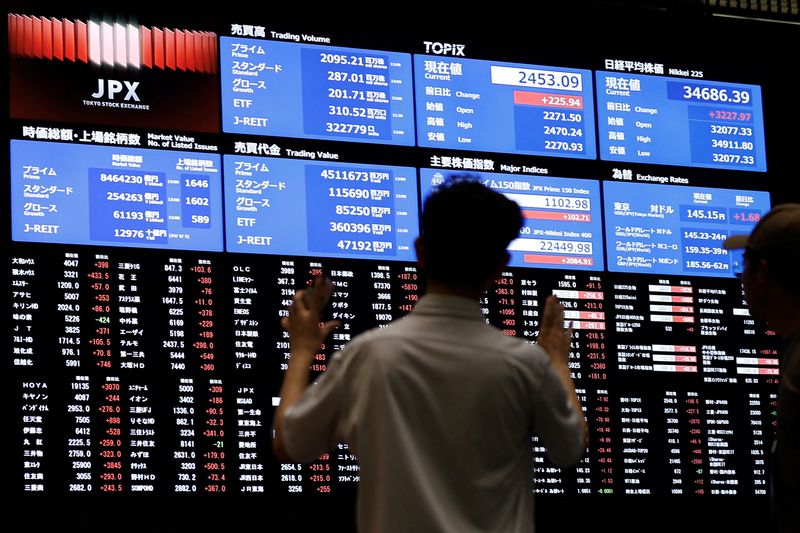(Reuters) – Foreign investors increased their purchases of Japanese stocks in the week ended Oct. 5, as the yen weakened following Prime Minister Shigeru Ishiba’s dovish remarks, boosting appetite for local exporters.
Foreigners acquired Japanese stocks worth 919.3 billion yen ($6.16 billion) on a net basis during the week, according to Finance Ministry data, in their largest weekly net purchase since April 13.
The yen fell about 4.4% against the dollar last week, the most since December 2009, on easing worries about rate hikes after Ishiba said Japan is not in an environment for an additional rate increase.
Foreigners have divested approximately 5.42 trillion yen worth of Japanese stocks so far in the second half of this year, after about 6 trillion yen of net purchases in the first half.
Exchange data showed that foreigners pumped about 395.55 billion yen into Japanese cash equities, but remained net sellers of derivative contracts for a third successive week, with about 604.4 billion yen in net sales.
In the Japanese bond market, foreigners snapped up a net 1.38 trillion yen worth of long-term securities, their largest weekly net purchase since Sept. 14. They also poured about 50.3 billion into short-term instruments.
Japanese investors bought 696.7 billion yen worth of foreign bonds after 55.8 billion yen of net selling in the prior week. They, however, sold 138.7 billion yen worth of short-term debt securities.
Japanese investors, meanwhile, acquired 257.8 billion yen worth of foreign equities, their largest weekly net purchase in four weeks.
($1 = 149.2500 yen)

